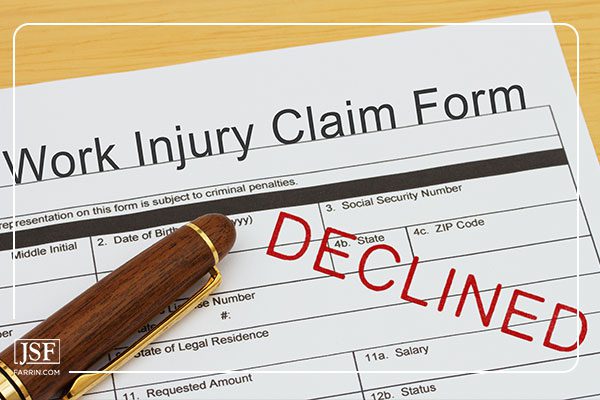Surprisingly, there is very little state or national data on how many workers’ compensation claims are denied. I’ve read that some insurance groups estimate first-round denial rates to be as high as 25%, but there doesn’t appear to be any accessible and reliable studies on the subject.
At our firm, we handle denied claims because we understand that far too often some insurance companies deny valid claims. We are upfront with potential clients and only work with individuals whom we think we can help. We have decades of combined workers’ comp case experience and know that the success rate of a workers’ compensation case is highly dependent on the circumstances surrounding it.
Instead of worrying about how many workers’ comp claims are denied, I advise you to focus on the things you can do to try to improve your chance of getting workers’ compensation benefits.
What to Do to Try to Boost Your Workers’ Comp Claim Success Chances
After you’re injured, time is of the essence. To try to maximize the likelihood of your claim being successful when you are hurt on the job, you should follow these steps:
- Report the injury to your employer immediately (in writing if possible)
- Have your employer send you for medical care
- Talk to a workers’ compensation attorney
- Record everything that happened when you were injured
- Obtain a copy of the accident report from your employer
- Maintain records of all communication regarding the accident and medical care
- File a workers’ comp claim or request that your employer file a claim*
*Some states, such as South Carolina, require that the employer (rather than the employee) file the claim.
Contacting an Attorney Can Be Vital in Workers’ Compensation Cases
You’ll notice that I listed “Talk to a workers’ compensation attorney” as the third suggested item – just after reporting your injury and seeking medical care. That’s because workers’ compensation cases can quickly become complicated. There are rules and procedures that must be followed to try to ensure the greatest chance of obtaining benefits. And there are also some insurance companies and employers who may want to minimize or even avoid paying benefits.
An experienced workers’ comp attorney can help you try to deal with these factors from the start. Here’s a video that explains several of the reasons why you should consider hiring a workers’ comp attorney. But before you decide whether or not to hire an attorney, contact the Law Offices of James Scott Farrin for a free case evaluation, online or over the phone at 1-866-900-7078.
We evaluate each case carefully before signing a client because we don’t want to waste your time and energy if we think your claim can’t be supported. And if we decide to work together on your workers’ comp claim, there will be no upfront costs to you or hourly fees to worry about because we work on a contingency fee basis.2 This means that we get paid an attorney’s fee only if we are able to recover for you.
We will work with you to try to ensure your claim is handled correctly from the beginning.
You May Also Be Interested In
Shocking Story of Denied Workers’ Comp Claim
Your Workers’ Comp Claim Has Been Denied. Now What?
Why Would Your Workers’ Comp Claim Be Denied? Learn Where Things May Have Gone Wrong
Appeals, the North Carolina Industrial Commission, and How We May Be Able to Help




